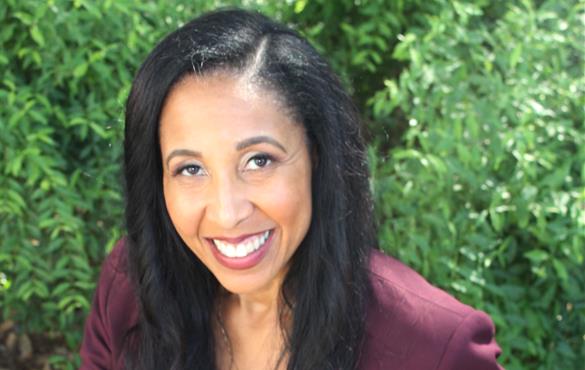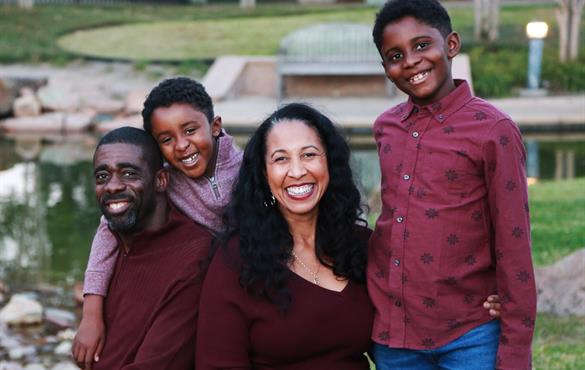For nine years, it was the job of Jamila Johnson, an alumna of the McKelvey School of Engineering, to oversee Houston’s floodplain management program, the largest such program under the Federal Emergency Management Agency (FEMA). With more than 20 individual watersheds and bayous, nearly 30 percent of the city lies in a floodplain.
Johnson, who earned a bachelor’s degree in civil engineering in 1994, served as the floodplain manager for Houston’s Department of Public Works & Engineering. She and her team helped the city recover from the 2015 Memorial Day and 2016 Tax Day floods, two devastating events that occurred less than 11 months apart.
“We had the opportunity in 2015 to say ‘Okay, well this worked and that didn't, so let's change the way we're going to handle the event in 2016,’” Johnson said. “And we were able to do even more than that for 2017.”
Hurricane Harvey hit in 2017, bringing with it a record-breaking amount of rain — more than 50 inches in less than four days.
“My husband and I put all our furniture up on blocks, and we went upstairs to bed with our rain slickers and boots on the landing fully expecting our house would be flooded,” Johnson said. “Fortunately, our house didn’t flood, but like all Houstonians, I know how it feels to be worried about my home flooding and I don’t even live in the floodplain.”
More than 150,000 of the city’s structures were flooded during the storm; of that, only 30,000 were located in the floodplain. And once the storm cleared, it was Johnson’s job to survey the damage.
Johnson worked with her team of engineers, as well as the city’s building inspectors, to visually inspect the damage — house by house — and record their findings. Her team provided inspectors with an app that allowed them to log their data directly through their phones. This provided city leadership with updated data every day, allowing them to more nimbly respond to the damage.
"There are almost 100,000 homes in the city's floodplain, and we planned to look at all of them because all of Houston was inundated,” she said. “And we expected that we would find damage all over the place — not every single home but certainly in every area — and for the most part we were right.”
It took inspectors only four days to visually inspect the affected structures. After the assessment, her team then turned to helping the city rebuild. They reached out to the community to deploy resources and connections to vitally needed services. It was dealing with the issues surrounding flood recovery that led to the creation of Johnson’s current position: infrastructure policy manager.
“It became clear that what we'd always done wasn't good enough,” Johnson said. “Even though we had a highly ranked program from FEMA, that wasn't enough, because some new structures got flooded in Harvey and the old structures really took a hit.”
In her new role, Johnson is responsible for ensuring how the city’s policies and regulations will best serve its growing population. One of her biggest challenges has been working with city leaders and members of the public to refine the city’s stormwater policies.
“The stakeholders in the community — from community organizations to my colleagues in engineering to the real-estate professionals and developers — all had a different take on how this should be handled,” Johnson said. “In the end, we came up with rules that help to move the community forward and ensure we can have a vibrant redevelopment community.”
As she continues in her role, she hopes to hear from more WashU alumni in the area seeking support with infrastructure policy. She and her husband, Gary Johnson, a 1992 graduate of the McKelvey School of Engineering who earned a bachelor’s degree in electrical engineering, live and work in the Houston area with their two children.
"My overall experience and education at WashU have helped me in my career,” she said. “I love WashU so much that I talked my younger sister into attending, and I recommend the school to anyone I meet.”
Click on the topics below for more stories in those areas
Back to News





